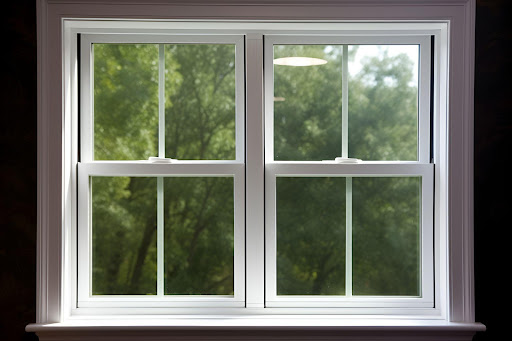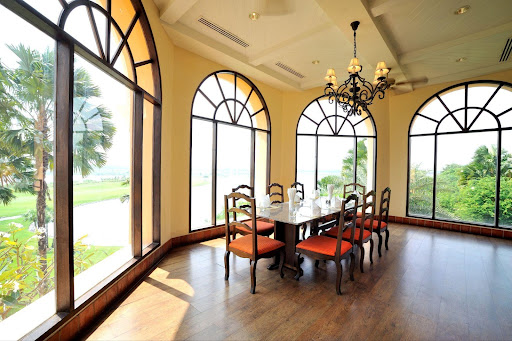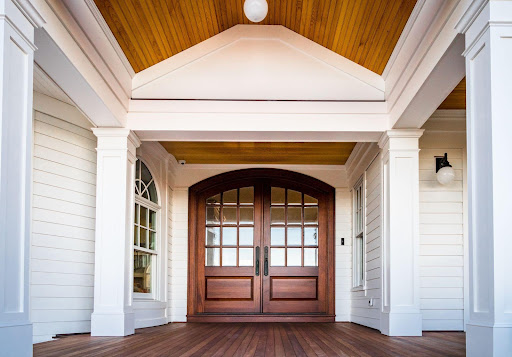Glass windows play a pivotal role in the realm of architectural elegance and interior design. They serve as the gateway between the coziness of our abodes and the world outside.
They are not just functional elements that bring in light and air but are significant contributors to the aesthetic appeal and character of a building. Custom glass windows elevate this contribution to a whole new level, offering limitless design, functionality, and expression possibilities.
This comprehensive guide will delve deep into the world of custom glass windows, exploring their myriad types and the intricate design process.
Whether you are a homeowner looking to renovate, an architect in the design phase, or simply a curious mind, this guide is designed to enlighten you on the journey from conceptualizing your custom glass windows to having them installed.
Without further ado, let’s dive in.
What Makes a Glass Window Custom?
When we talk about custom glass windows, we’re talking about windows made just for you and your space. They’re not one-size-fits-all but are created to fit your specific needs, tastes, and building design. Here’s what makes a glass window custom:
- Made to fit: Custom windows are made to fit the exact size you need. This is really important for buildings with unusual shapes where standard windows just won’t work. They fit perfectly with your building’s design.
- Your choice of glass: You get to choose the type of glass you want, whether it’s toughened, decorative, or something that keeps the heat in. The glass you choose can change how strong, safe, and energy-efficient your window is and how it looks.
- Design your way: With custom windows, you can pick your own designs, shapes, and colors. This means you can have windows that match your style and the look of your space.
- Better performance: Custom windows can be made to meet special requirements, like blocking out noise or protecting against UV rays. By choosing the right glass and frame, your custom windows can make your space more comfortable and lower your energy bills.

Types of Custom Glass Windows
- Tempered Glass Windows: Tempered glass is heat-treated to be stronger than regular glass. If it breaks, it shatters into small, dull pieces, reducing the risk of injury. It’s ideal for areas prone to impact, like doors and low windows.
- Laminated Glass Windows: Laminated glass has a plastic layer between two glass panes, holding the glass together if it breaks. It’s suitable for security windows and soundproofing.
- Insulated Glass Windows: Insulated glass has two or more glass panes with a space in between, reducing heat transfer. It’s great for exterior windows to maintain indoor temperatures.
- Decorative Glass Windows: Decorative glass can have patterns, textures, colors, or be stained or frosted. It’s perfect for adding style and privacy, like in bathroom windows.
- Low-Emissivity (Low-E) Glass Windows: Low-E glass has a coating that reflects UV and infrared light, protecting interiors and reducing energy costs. It’s ideal for areas with extreme weather conditions.
- Tinted Glass Windows: Tinted glass has added color to reduce glare and increase privacy. It’s suitable for buildings with direct sunlight exposure.
- Custom-Shaped Windows: Custom-shaped windows are designed in non-standard shapes, like circles, triangles, or arches. It’s ideal for architectural accents and unique building designs.
- Double-Hung Windows: Double-hung windows slide vertically with two sashes, allowing ventilation from the top or bottom. They’re common in residential homes for versatile airflow.
- Sliding Windows: Sliding windows open horizontally, providing ease of use and saving space. They’re suitable for rooms with limited space or narrow walls.
- Bay and Bow Windows: Bay and bow windows protrude outward, creating extra space and allowing more light. They’re ideal for creating window seats or small alcoves.
When choosing a custom glass window, consider the specific needs, aesthetic preferences, and functionality required for your space. Whether it’s enhanced safety, energy efficiency, unique design, or improved comfort, there’s a custom glass window type to suit every requirement.
Now that we’ve discussed the different types of glass you can use in your custom windows let’s discuss the design process.

The Design Process
The design process includes an initial consultation, creation, approval, and finalization.
Initial Consultation
The initial consultation is a crucial step in acquiring custom glass windows, as it lays the foundation for the entire project. It’s a collaborative process where a professional discusses your needs, preferences, and specifications. Here’s a simplified breakdown of how the initial consultation typically works:
- Scheduling the consultation: You’ll start by contacting a window company specializing in custom glass windows to schedule a consultation.
- Discussing needs and preferences: During the consultation, you’ll discuss your specific needs, preferences, and window ideas. You might talk about the type of glass you want, the style of the window, any special features like tinting or insulation, and other design elements.
- Assessing the space: The professional will assess the space where the windows will be installed, taking note of the dimensions, structure, and any potential challenges. This will involve measuring the window openings and evaluating the existing window frames and surrounding structures.
- Discussing the budget: You’ll discuss your budget for the project. This is important as it will guide the recommendations and options provided by the professional. The professional might give you a rough estimate of the costs based on your requirements and preferences.
- Exploring the options: The professional will present various options that align with your needs, preferences, and budget. You’ll explore different glass types, frame materials, design elements, and customization options, weighing the pros and cons of each.
Design Creation
After the initial consultation, the design creation phase is the next step in acquiring custom glass windows. This is where your ideas and specifications start to take a tangible form. Here’s how the design creation process typically unfolds:
- Developing a design concept: Based on your needs, preferences, and the information gathered during the initial consultation, the design team or professional will develop a conceptual design for your custom glass windows.
This concept will consider the type of glass, frame material, size, shape, and any special features or design elements you’ve requested. - Selecting materials and features: You’ll work closely with the design team to select your windows’ specific materials and features. This includes choosing the glass type, frame material, color, texture, hardware, and additional features like tinting or coatings.
- Creating detailed design drawings: The design team will create detailed design drawings or CAD models of the custom glass windows, showing all dimensions, materials, and features. These drawings will clearly and accurately represent how the finished windows will look and function.
- Reviewing and approving the design: You’ll have the opportunity to review the design drawings and request any modifications or adjustments. It’s important to review the designs carefully, ensure that all details are accurate, and meet your expectations before approval. Once you are satisfied with the design, you’ll approve it, allowing the project to move forward to the next stages.
- Estimating cost and final quote: After the design is finalized, the company will provide a detailed cost estimation and final quote for the project. This quote will include the costs of materials, labor, installation, and any additional services or features.
- Finalizing the contract and timeline: Once the design is approved and the quote is accepted, you’ll finalize the contract, including all the project details, costs, and terms and conditions. A timeline will be established, outlining the various stages of the project, including fabrication and installation dates.
- Fabrication process: With the design approved and the contract in place, your custom glass windows will be fabricated. The windows will be meticulously crafted according to the approved design, ensuring that all specifications and quality standards are met.
The design creation phase is a collaborative, meticulous process where your vision for the custom glass windows is translated into a tangible design.
This phase is crucial as it sets the foundation for fabricating and installing the windows, ensuring that the final product aligns perfectly with your expectations and enhances your space’s aesthetic and functional aspects.

Approval and Finalization
The approval and finalization process is a critical phase in acquiring custom glass windows. It ensures that every detail is meticulously reviewed and agreed upon before the fabrication begins. Here’s how the approval and finalization process typically works:
- Reviewing the final design: You will be presented with the final design, which includes detailed drawings or models, specifications, and materials. It’s crucial to review every detail meticulously, ensuring that all elements align with your preferences, needs, and discussions during the design creation phase.
- Requesting modifications: If there are any discrepancies or you desire any modifications, this is the time to communicate them. The design team will make the necessary adjustments and present the revised design for your review and approval.
- Approving the final design: Once you are completely satisfied with the design and all the elements are accurately represented, it’s time to give your approval. This approval signifies your agreement with all design aspects and is a green light for the team to proceed to the fabrication phase.
- Final quote and cost agreement: After the final design approval, you will receive a final quote detailing all the costs associated with the project, including materials, labor, and installation. It’s important to review the quote carefully and ensure that all components of the project are covered and that the costs align with your budget.
- Finalize the contract: Once you’ve agreed to the terms, it’s time to draw up the contract. Review the contract thoroughly, and once everything is in order, both parties will sign it to finalize the agreement.
- Establish the timeline: You’ll receive a timeline with the key milestones, fabrication schedule, and installation dates.
- Payment schedule: The payment schedule will be outlined in the contract, detailing the installment amounts and due dates.
- Begin fabrication: With the design approved, the contract signed, and the initial payment made, the fabrication of your custom glass windows will begin. The windows will be crafted to the exact specifications of the approved design, adhering to the highest quality standards.
The approval and finalization process is about ensuring absolute clarity and agreement on every aspect of the project before the actual work begins.
This phase is pivotal in avoiding misunderstandings and ensuring that the custom glass windows are fabricated to your exact specifications and preferences, ultimately leading to a successful project outcome.
Get Your Custom Glass Windows From Murray Glass
Murray Glass is your trusted partner for custom glass windows, bringing unparalleled expertise, meticulous craftsmanship, and a passion for excellence to the table. Whether you desire sophisticated elegance, modern minimalism, or artistic expression, Murray Glass is here to translate your visions into stunning realities.
Ready to get started? Call Murray Glass at 801.262.3364 or complete the form on our website to start the process today.





